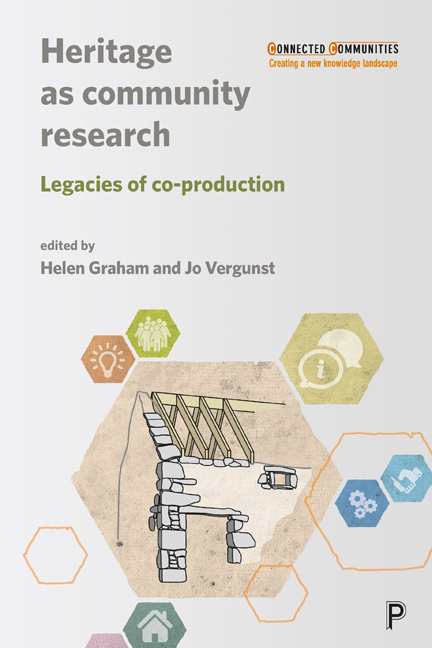Introduction: heritage as community research
Published online by Cambridge University Press: 27 April 2022
Summary
Introduction
It seems that the past is not the same as it used to be. The promises of both history, in which the past is written from documentary evidence into a single authoritative narrative, and archaeology, in which the truth of the past can be revealed layer by layer on a site, have been redeemed by the figures of the historian and the archaeologist as experts on the past. Both have stood their own tests of time and it is not our purpose to undermine them here. Instead, this book explores how not all accounts of the past are created by those means and by those figures. We consider the ways in which the past can become something different: more akin to a journey in which the destination is uncertain than a pre-existing set of facts that is waiting to be discovered by the historian or archaeologist. The single expert figure no longer, of necessity, takes precedence in finding the way and is replaced by a looser collective made up of interested amateurs, ‘communities’ and ‘the public’, as well as professionals who may contribute their own skills and resources but by no means ‘own’ the research.
In this regard, the rise and proliferation of discourses around heritage are positive developments. The meanings of heritage shifted in the 1970s and 1980s from the medieval sense of inheritable property, to the now-mainstream form of historical narrative or material that resonates – somehow – into the present. Associating heritage with the present might feel counter-intuitive, and yet the ways in which heritage opens onto questions of past, present and future have proved to be both powerful and useful. In one way, heritage can be said to differ from history by way of the latter's fixation on the past compared with the former's emphasis on bringing the past into the present. Through the process of bringing the past into the present, the notion of inheritance is broadened from the individual to the communal, and from the legal to the symbolic.
Dictionary definitions of heritage are perhaps unsurprisingly behind the curve in this respect. Merriam-Webster gives us ‘legacy’, ‘inheritance’ and ‘tradition’ (Merriam-Webster: ‘heritage’), and following a list of ‘inheritance’ definitions, the Oxford English Dictionary provides a further sense of heritage as follows:
- Type
- Chapter
- Information
- Heritage as Community ResearchLegacies of Co-production, pp. 1 - 24Publisher: Bristol University PressPrint publication year: 2019



